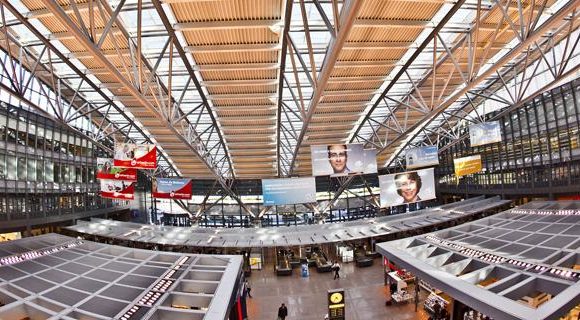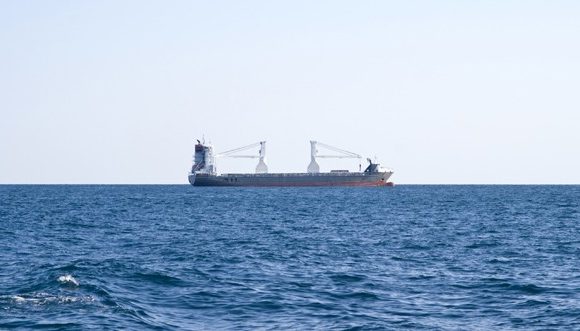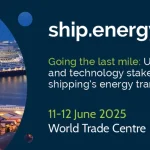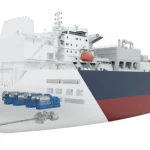AI is Revolutionising Shipping and Navigation: Transforming the Maritime Industry
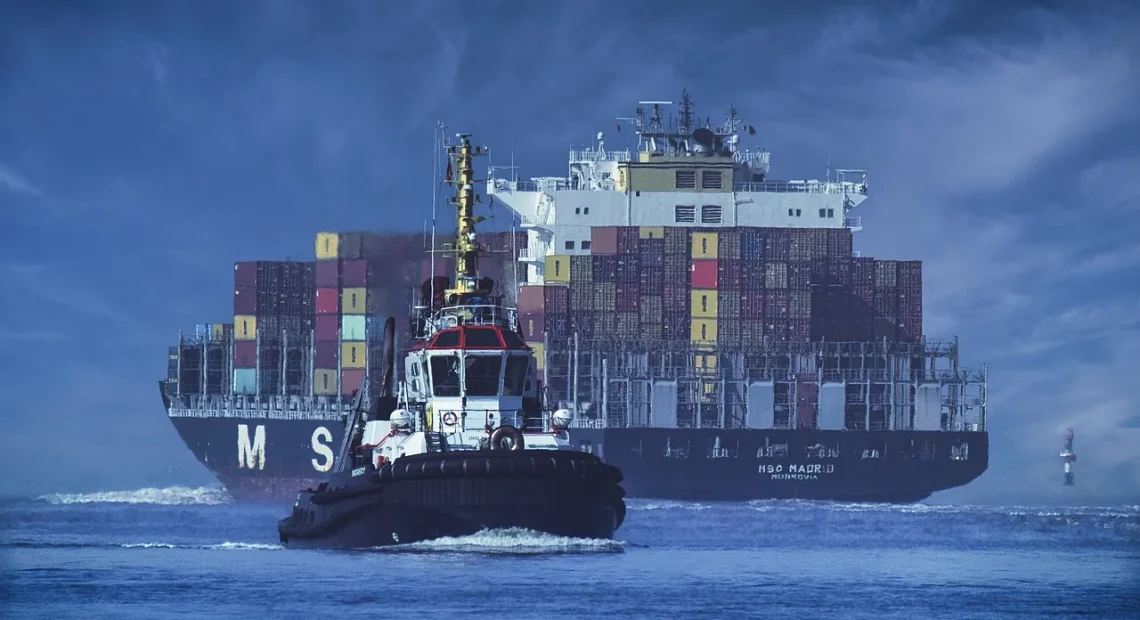
“The future of shipping is not about ships. It’s about information, data and people.” Maersk’s CEO Søren Skou said this. It shows how AI is changing the maritime industry. AI in shipping and navigation is bringing new efficiency and innovation. It’s solving problems that have been around for decades.
AI is changing everything from how ships navigate to how they stay maintained. These technologies are making routes better, cutting fuel use, and making things safer. They’re also making customers happier and helping the environment in big ways.
We’re going to look at how AI is changing global trade. It’s leading the industry towards a smarter, safer, and greener future.
Key Takeaways
- AI is transforming shipping operations, enhancing efficiency and safety
- Autonomous vessel navigation is becoming a reality through AI advancements
- Maritime AI applications are improving route optimisation and fuel efficiency
- AI-driven predictive maintenance is reducing downtime and operational costs
- The customer experience in shipping is being revolutionised by AI technologies
- Environmental sustainability in maritime operations is boosted by AI solutions
The Current State of the Shipping Industry
The shipping industry is facing big challenges in today’s fast-moving global economy. Route inefficiencies and unpredictable maintenance needs are just a few of the issues they deal with. These problems affect their profits.
Traditional Challenges in Maritime Operations
Shipping companies have used manual processes and made decisions based on experience for a long time. This often means they take inefficient routes, face unexpected breakdowns, and struggle with strict rules. Customer needs change often, making things even harder.
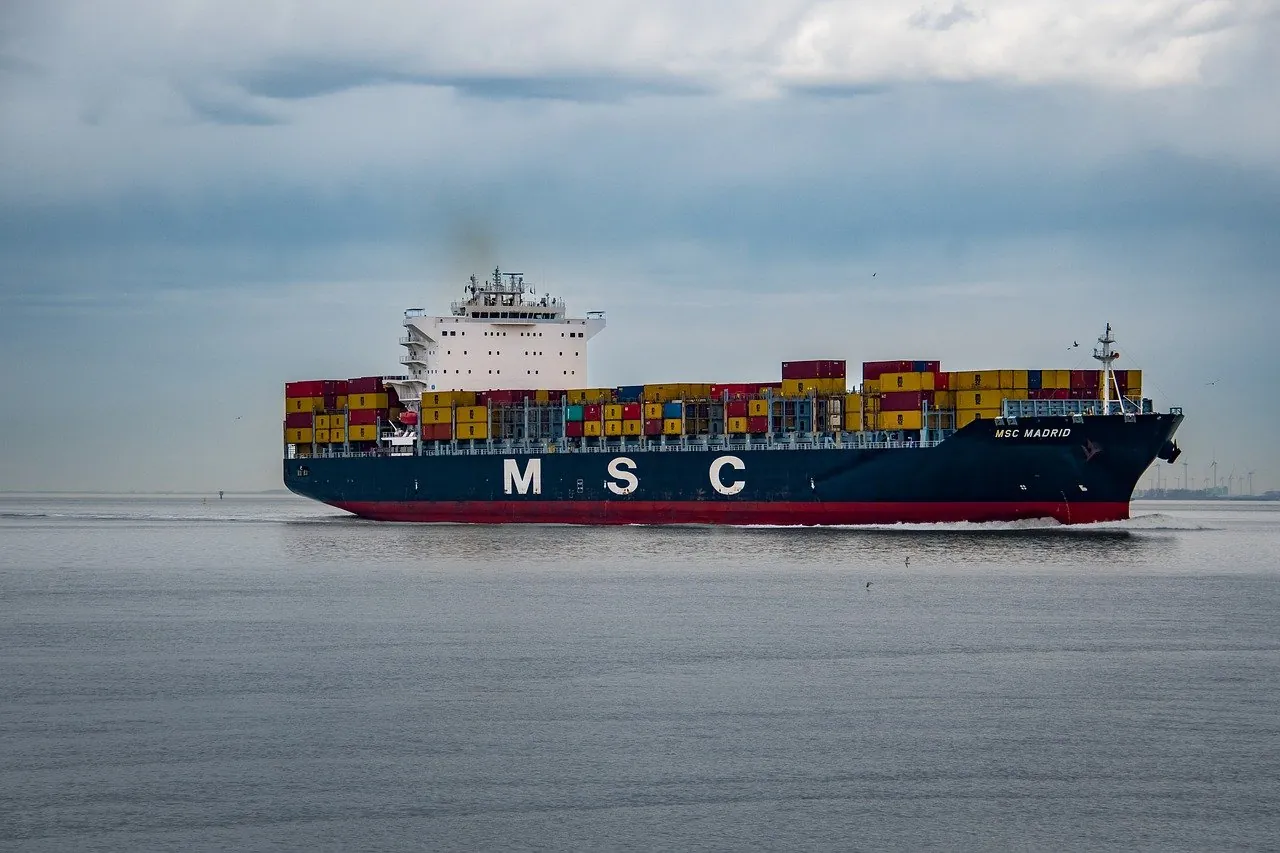
The Need for Technological Advancements
The industry sees the need for new solutions to overcome these challenges. Technology is key to making operations smoother, more efficient, and better overall. Predictive vessel maintenance and using AI for cargo optimisation are now vital for staying ahead.
Emergence of AI as a Game-Changer
Artificial Intelligence is changing the shipping sector. Companies that use AI in transportation and logistics see profits go up by more than 5%. AI helps improve vessel operations, optimise container routes, and create better fuel models. These changes are making intelligent routing and scheduling possible, changing how ships move.
“AI is not just an option; it’s a necessity for the future of shipping. It’s reshaping our industry, offering solutions we never thought possible.”
The maritime world is welcoming these tech changes, opening up huge growth and innovation in shipping. Adding AI means a more efficient, safer, and green future for the industry.
Understanding AI in the Context of Shipping
AI has changed the game in the shipping world, making operations more efficient. It’s now a key part of how ships move and stay in good shape. Maritime AI is improving things like planning routes and keeping ships running smoothly.
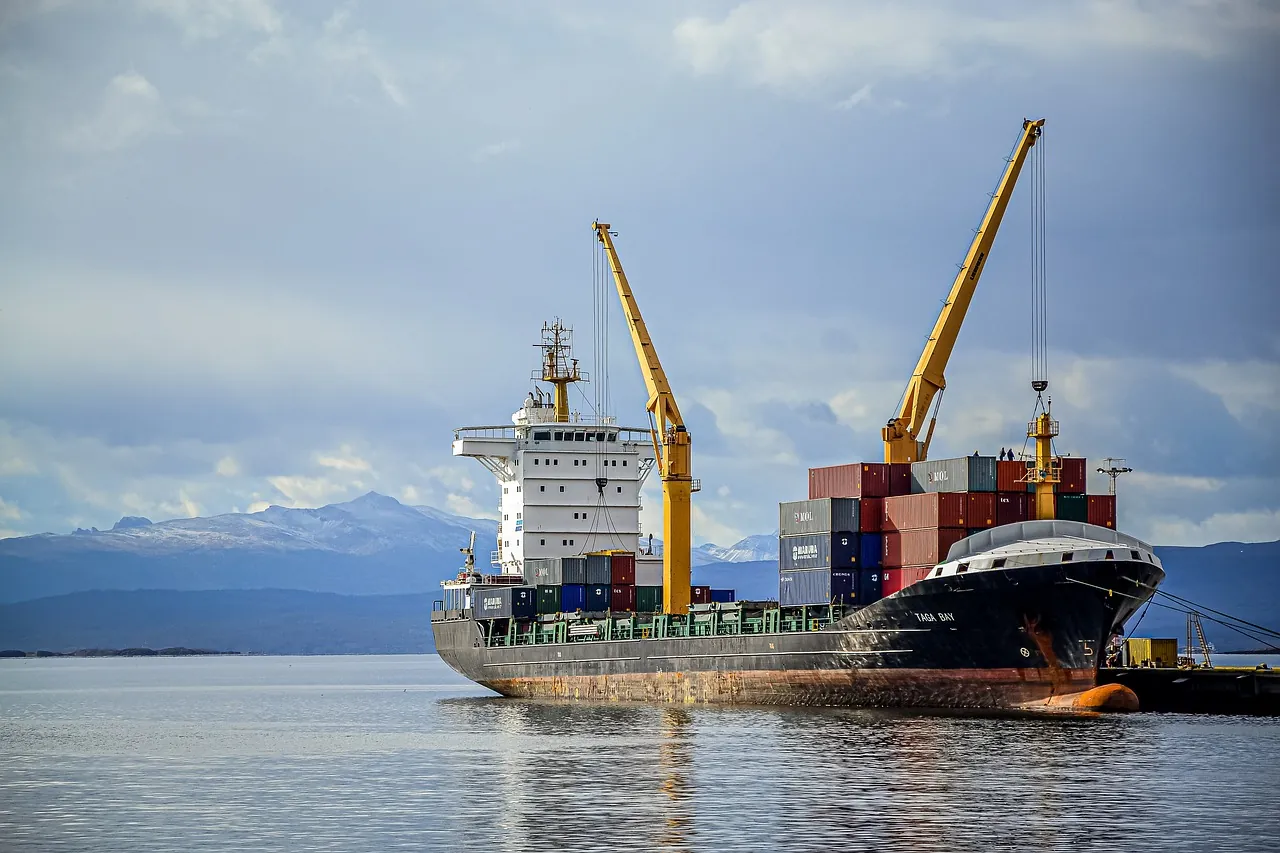
These smart technologies handle huge amounts of data from many places. This lets shipping firms make choices based on facts. AI looks at past and current data to find the best routes, predict when things might break, and make ships safer.
AI is especially good at predicting the weather for ships. It looks at weather patterns and past data to give accurate forecasts. This helps ships steer clear of bad weather and take the best paths.
- Predictive maintenance
- Route optimisation
- Autonomous navigation
- Smart port operations
The shipping world is quickly taking up these AI tools. Companies are training their IT teams in AI and using big data to spot trends. This move to AI is changing maritime transport for the better, making it safer, more efficient, and kinder to the planet.
“AI is not just a tool; it’s a strategic asset that’s reshaping the entire shipping industry.”
Use of AI in Shipping and Navigation
AI is changing the shipping world, making many parts of maritime work better. It helps with planning routes and making things safer. AI is bringing new ideas to the industry.
Route Optimisation
AI looks at weather, traffic, and port delays to find the best shipping paths. This cuts down on fuel use and lowers costs. It makes shipping cheaper and better for the planet.
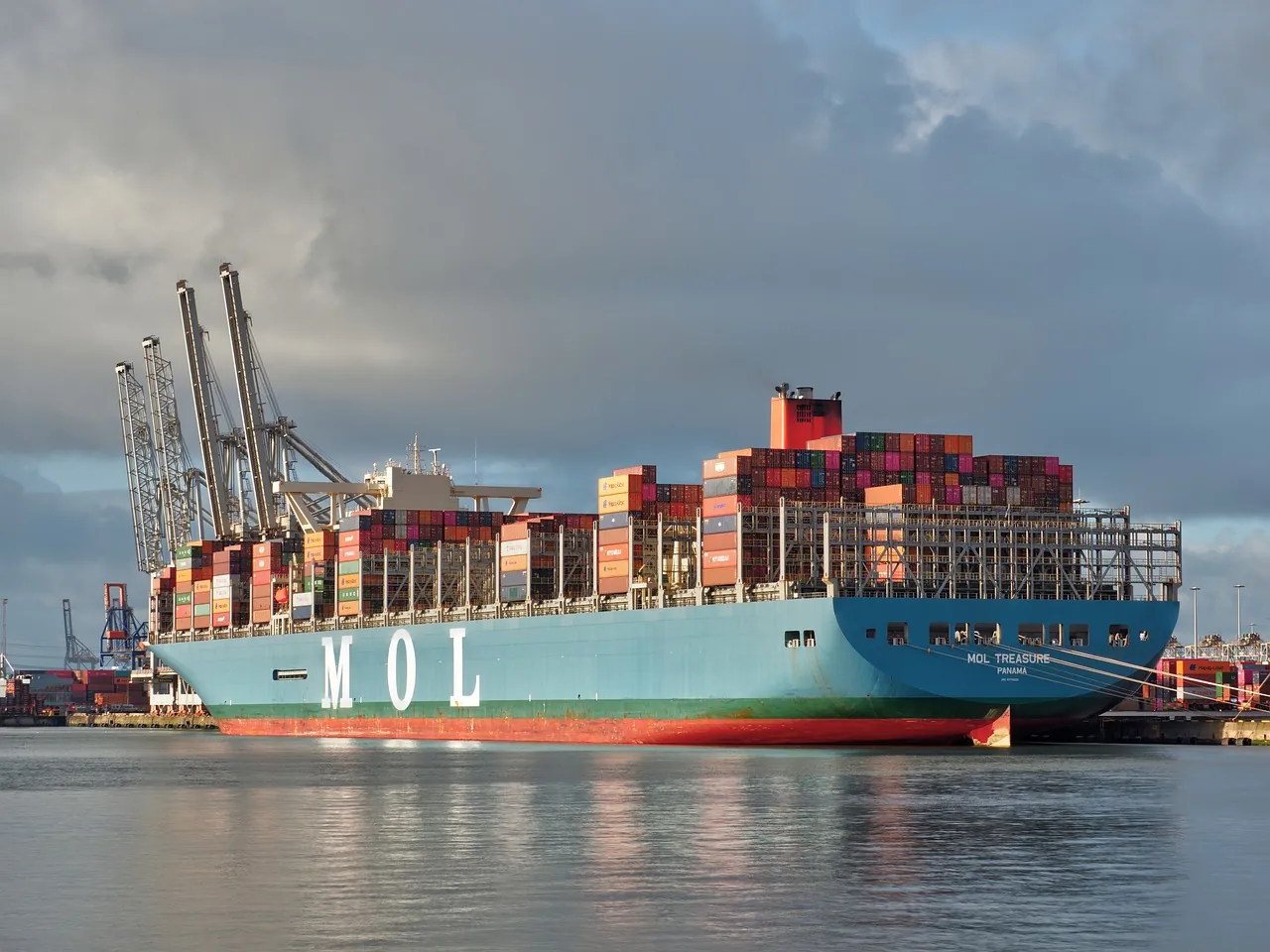
Predictive Maintenance
AI uses data from sensors to check on ship condition and predict when parts might break. This stops problems before they start, saving time and money on repairs.
Safety and Compliance
AI helps keep the sea safe by looking at lots of data to spot dangers. It can spot ships acting strangely, helping avoid accidents. This also makes sure ships follow the rules.
Supply Chain Management
AI is changing how ports manage goods and track supplies. It predicts what’s needed, keeps stock right, and gives updates on supply chains.
“AI is not just a tool; it’s a game-changer in maritime operations, enhancing efficiency, safety, and sustainability across the board.”
As AI gets better, it will do more in shipping and navigation. This means a future of smarter, safer, and more efficient sea travel.
AI-Enabled Autonomous Vessel Navigation
The maritime industry is seeing a big change with autonomous vessel navigation. This new tech is changing how ships work at sea. It promises better safety and efficiency.
Collision Avoidance Systems
AI in maritime surveillance has led to advanced collision avoidance systems. These systems use sensors like cameras, GPS, and radar. They spot dangers and help ships move safely through busy waters.
Real-Time Decision Making at Sea
Autonomous navigation uses AI to make quick decisions from lots of data. This lets ships quickly adapt to weather changes, pick the best route, and handle complex traffic.
Challenges and Opportunities
Autonomous navigation has many benefits but also challenges like meeting rules and keeping data safe. The big wins include fewer mistakes, lower costs, and better environmental impact. These reasons are pushing for more use of this tech.
“Autonomous vessel navigation represents the future of maritime transport, promising safer, more efficient, and environmentally friendly shipping operations.”
As this tech gets better, we’ll see more ships with AI navigation. This will start a new era of smart shipping.
Revolutionising Port Operations with AI
Ports are now using AI to make operations smoother and more efficient. AI is changing how containers are moved, schedules are planned, and resources are used. This change is making ports smarter and more efficient around the world.
The Port of Rotterdam is a great example of how AI is being used. It has a smart system that predicts when ships will arrive. This helps reduce delays and makes managing ship schedules better. It leads to smoother operations and better flow of containers.
AI does more than just help with scheduling:
- Automated container handling makes loading and unloading faster
- Predictive maintenance warns of equipment problems before they happen
- Resource optimisation makes sure people and machines are used well
These changes mean ships can leave and arrive faster, costs go down, and managing capacity gets better. Ports using AI see big improvements in how well they work and how happy customers are.
“AI is not just enhancing our operations; it’s redefining what’s possible in port management,” says a senior port official.
As AI gets better, we’ll see more new solutions in port logistics. From AI-powered cranes to self-driving vehicles, the future of ports looks very automated and efficient.
AI-Powered Maritime Surveillance and Security
AI is changing how we handle shipping and navigation. It makes security better by offering strong solutions to old problems in the maritime world.
Threat Detection and Risk Assessment
AI has changed how we spot threats in shipping. It looks at lots of data from different places to find risks quickly and accurately. This means we can act fast when threats appear, making the seas safer.
Enhanced Monitoring of Vessel Traffic
AI helps us watch vessel traffic in real-time. These smart systems track ships, spot odd behaviour, and highlight anything that looks wrong. They get better at spotting patterns and predicting problems over time.
Cybersecurity in Maritime AI Applications
With AI playing a bigger role in maritime work, keeping data safe is more important than ever. AI helps protect important systems from cyber threats. These smart defences change to meet new risks, keeping data safe and AI systems secure.
“AI-powered maritime surveillance is not just about monitoring; it’s about creating a safer, more secure maritime environment for all stakeholders.”
Adding AI to maritime surveillance is a big step forward for shipping security. As these technologies get better, they will help make our seas safer and easier to monitor than ever.
The Role of Machine Learning in Weather Forecasting for Maritime Operations
Weather forecasting is key for maritime operations. AI has changed how we handle this important task. Now, machine learning is a must-have for shipping companies around the globe.
AI looks at lots of data to predict the weather well. This includes:
- Historical weather records
- Satellite imagery
- Real-time sensor information
By using this data, AI gives accurate weather forecasts. This helps shipping companies make smart choices. They can change their routes to dodge bad weather, save fuel, and keep everyone safe.
Machine learning has made a big difference in maritime weather forecasting. Ships can now go through tough waters with more confidence. Captains get updates on storms or rough seas, helping them plan better.
“AI-powered weather forecasting has transformed how we approach maritime operations. It’s not just about efficiency; it’s about ensuring the safety of our crew and cargo.”
As AI gets better, we’ll see even more precise weather forecasts for ships. This means safer trips, less fuel used, and better schedules for maritime operations everywhere.
Improving Customer Experience in Shipping through AI
AI is changing the shipping world by making things better for customers. It has made customer service, personalisation, and tracking much better.
AI-Driven Chatbots and Virtual Assistants
Shipping companies now use AI chatbots for help. These chatbots work all the time, answering questions and solving problems quickly.
Personalised Shipping Recommendations
AI looks at customer info to give custom shipping options. This makes customers happier by giving them choices that fit their likes and past actions.
Real-Time Tracking and Updates
AI has changed how we track shipments. Now, customers get updates as things happen, making things clearer and less worrying about when things will arrive.
“AI has significantly improved our ability to provide accurate delivery estimates and real-time tracking information to our customers.”
By using AI, shipping companies are making things smoother and more focused on the customer. This move to AI is setting new high standards in the shipping world. It promises a future where things work better and customers are happier.
Overcoming Barriers to AI Adoption in the Shipping Industry
AI is set to change the maritime industry. But, many hurdles stop it from being widely used. These include technical problems and human factors. We need a detailed plan to get past these issues.
One big problem is integrating data. Many shipping firms use old systems that don’t talk to modern AI. This makes it hard for AI to help the maritime sector fully.
Trust is another issue. Some people don’t want to rely on AI for big decisions. This makes it harder to use AI in shipping and navigation.
- Shortage of AI-skilled talent in the maritime industry
- Poor quality of data across the supply chain
- Fears of job displacement due to automation
To beat these challenges, shipping firms need a solid plan. This means improving data quality, sharing information better, and training workers well.
“The key to successful AI adoption in shipping lies in a step-by-step approach to digital transformation, balancing innovation with practical implementation.”
By dealing with these issues step by step, the shipping industry can use AI to its full potential. This will lead to better, safer, and greener maritime operations.
Conclusion: The Future of AI in Shipping and Navigation
AI is changing the way we navigate and ship goods. It will make things more efficient, cheaper, and greener. We’re just starting to see how AI can change shipping, from better routes to safer operations.
AI in shipping is getting better fast. New AI tools and more data are helping us do more. With tech like blockchain and the Internet of Things, we can do amazing things in shipping. AI is key to making things run smoother and improving how we serve customers.
AI is making shipping smarter, safer, and greener. It’s leading to things like self-driving ships and smarter port management. Even with challenges, the benefits of using AI in shipping are clear. It’s an exciting time, with AI set to be a big part of the future.

